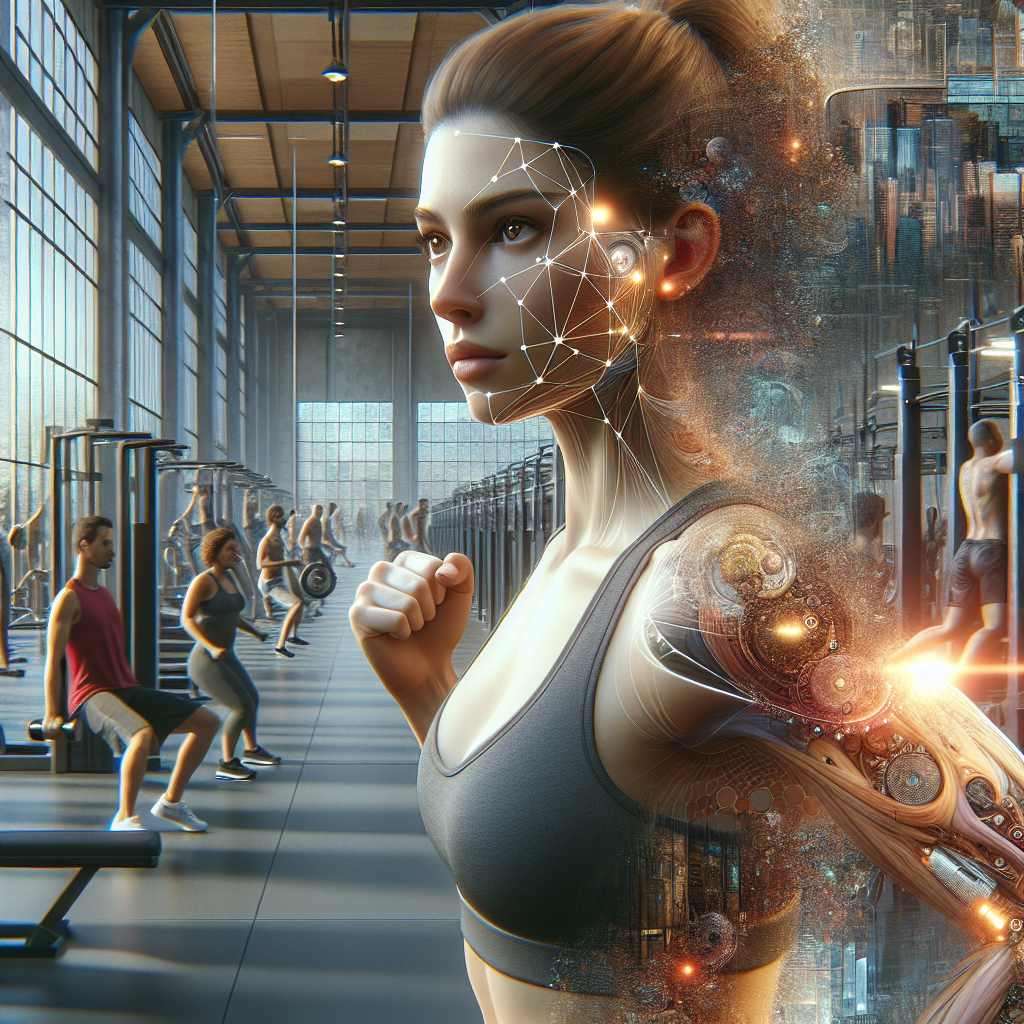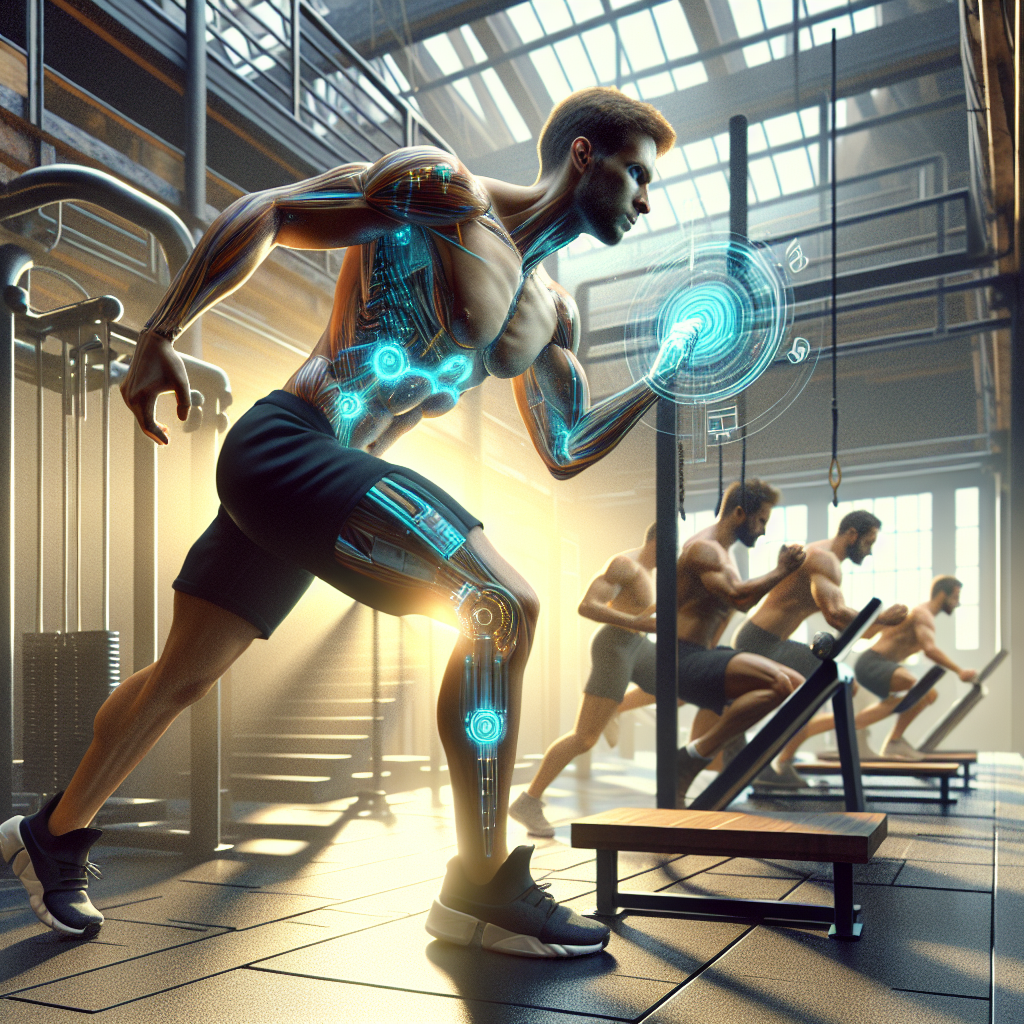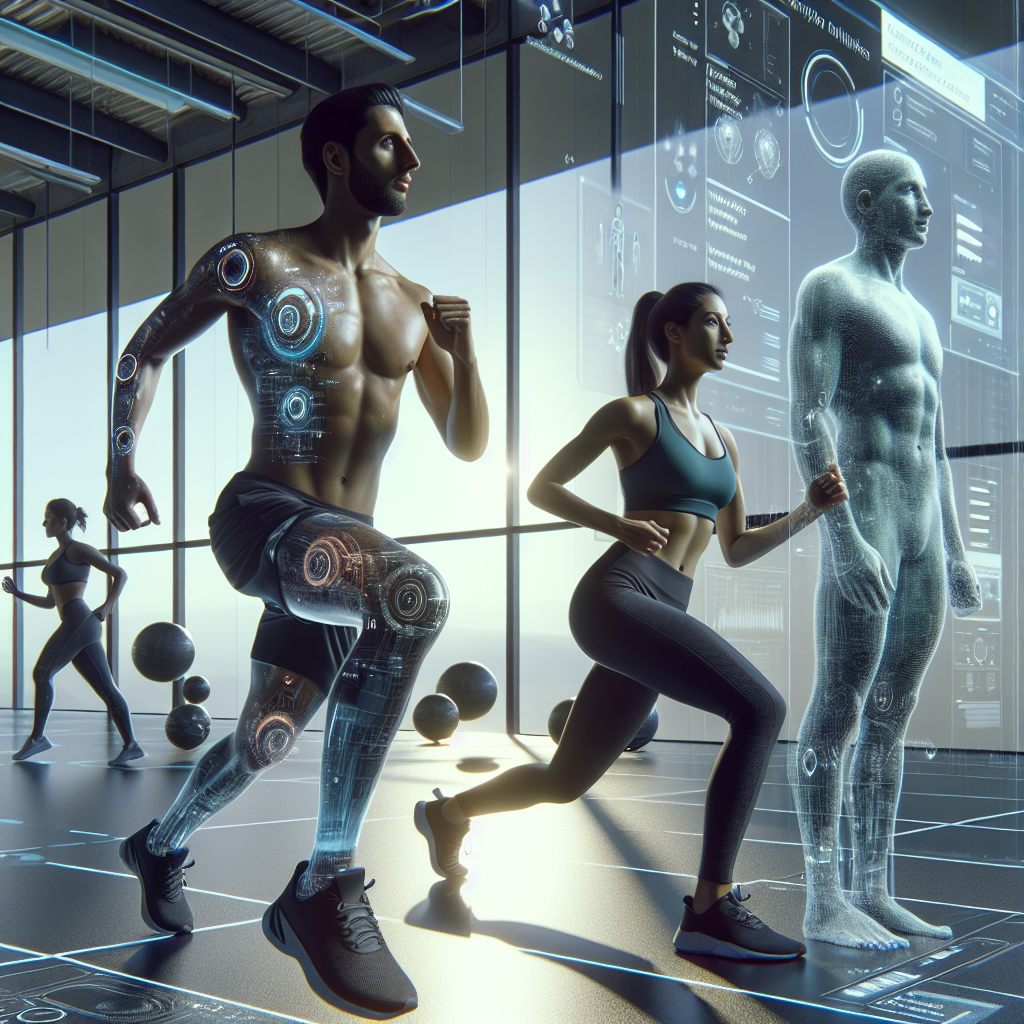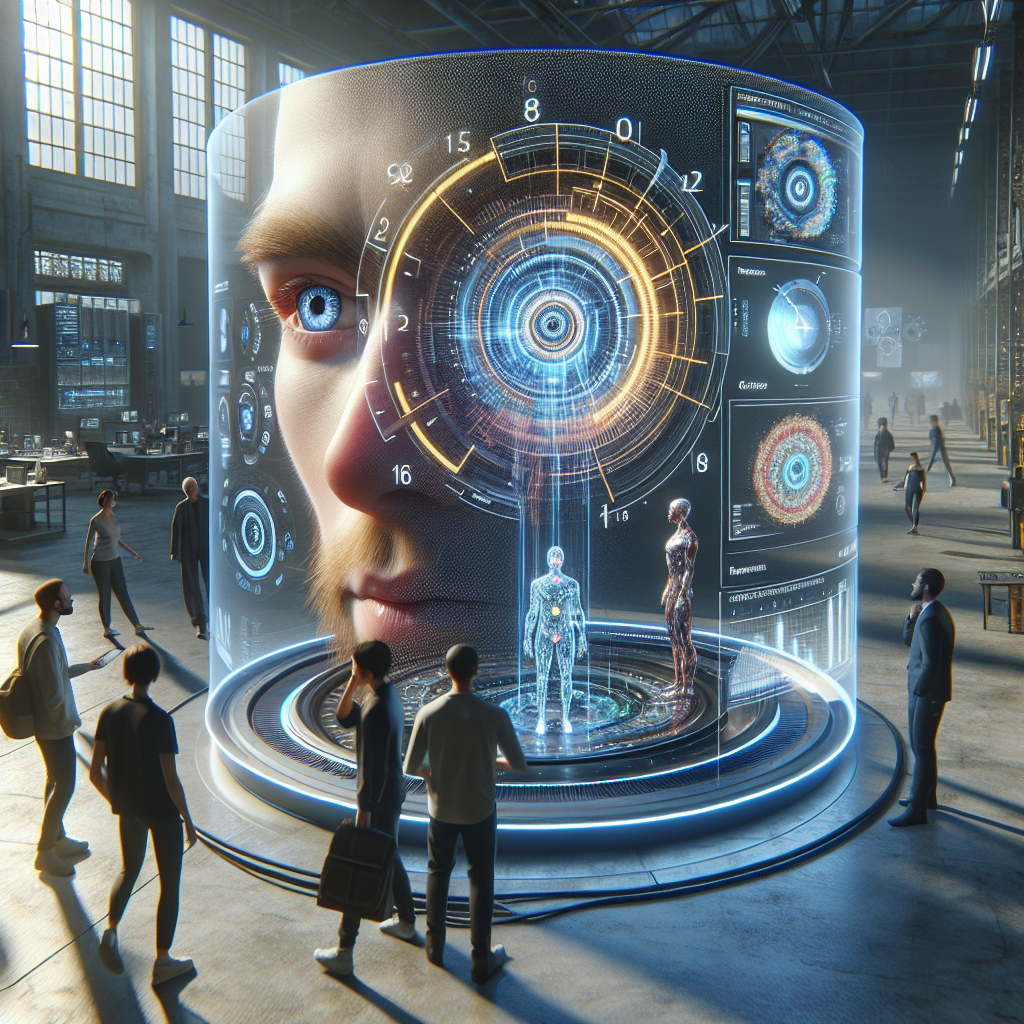Virtual AI personal trainers are revolutionizing the fitness industry by providing personalized, data-driven workout routines that cater to individual needs and goals. These digital trainers use advanced artificial intelligence algorithms to analyze user data, track progress, and offer tailored exercise programs. This technology not only enhances the efficiency of workouts but also makes fitness more accessible by offering flexibility, affordability, and convenience. As we delve deeper into the impact of virtual AI personal trainers on fitness routines, we will explore how they are changing the landscape of personal training and fitness management.
The Rise of Artificial Intelligence in Fitness
The integration of artificial intelligence into various sectors has been a game-changer, and the fitness industry is no exception. AI personal trainers are part of a broader trend towards digital fitness solutions that leverage technology to enhance user experience and outcomes. By understanding user preferences and patterns, AI personal trainers provide a bespoke fitness journey that was once only possible with human trainers.
Technological Advancements Driving the Trend
Several technological advancements have contributed to the rise of virtual AI personal trainers:
- Machine Learning: AI systems learn from user data to improve recommendations and workout plans over time.
- Natural Language Processing (NLP): Enables AI trainers to communicate effectively and understand user queries.
- Wearable Technology: Devices like smartwatches and fitness bands provide real-time data that AI systems use to tailor workouts.
- Cloud Computing: Supports the storage and processing of large volumes of data, facilitating personalized training at scale.
Popular AI Fitness Platforms
Several platforms have emerged as leaders in the AI fitness space, offering unique features and capabilities:
- Freeletics: Uses AI to create personalized workout plans based on user feedback and performance metrics.
- Fitbod: Utilizes machine learning to design strength-training plans that adapt to user progress.
- JEFIT: Offers AI-driven insights and tracking for bodybuilding and weightlifting enthusiasts.
- MyFitnessPal: Combines nutrition tracking with AI recommendations for holistic health management.
Benefits of AI Personal Trainers
Virtual AI personal trainers offer numerous advantages over traditional fitness methods, making them an attractive option for many users.
Personalization and Adaptability
One of the most significant benefits of AI personal trainers is their ability to provide highly personalized workout routines. By analyzing user data, including fitness levels, goals, and preferences, these trainers adapt exercises to fit individual needs. This personalization extends to adjusting plans based on user feedback and performance metrics, ensuring workouts remain challenging yet achievable.
Accessibility and Convenience
AI personal trainers are available 24/7, providing unparalleled convenience. Users can access their personalized workouts anytime and anywhere, removing barriers such as gym hours or location constraints. This accessibility is particularly beneficial for individuals with busy schedules or those living in remote areas.
Cost-Effectiveness
The affordability of virtual AI personal trainers makes them an appealing alternative to traditional personal training services. While hiring a human trainer can be costly, AI trainers offer a more budget-friendly option, often with subscription-based models or one-time fees.
Data-Driven Insights and Motivation
AI personal trainers provide users with detailed insights into their fitness progress through data analysis and visualization. These insights help users understand their strengths and areas for improvement, fostering motivation and commitment to their fitness journey. AI systems also employ gamification elements, such as progress tracking, achievements, and leaderboards, to enhance user engagement and motivation.
Challenges and Limitations
Despite their numerous benefits, virtual AI personal trainers also face certain challenges and limitations that users should be aware of.
Lack of Human Touch
While AI trainers offer personalized experiences, they may lack the empathy and motivation provided by human trainers. Human trainers can offer emotional support, encouragement, and real-time feedback that AI systems may struggle to replicate.
Dependence on Technology
The effectiveness of AI personal trainers relies heavily on technology, such as smartphones, wearables, and internet connectivity. Users without access to these technologies may struggle to fully benefit from AI-driven fitness solutions.
Privacy and Data Security Concerns
AI trainers collect and analyze vast amounts of personal data, raising privacy and security concerns. Users must trust that their data is handled responsibly and securely, making it essential for AI fitness platforms to prioritize data protection measures.
Impact on Fitness Routines
The integration of virtual AI personal trainers into fitness routines has transformed how individuals approach their workouts and overall fitness management.
Customized Workout Plans
AI trainers design workout plans tailored to each user’s unique needs and goals. These customized plans help users achieve their fitness objectives more efficiently and effectively than generic workout routines.
Enhanced Goal Setting and Tracking
AI personal trainers assist users in setting realistic and achievable fitness goals, providing guidance and motivation throughout their journey. By tracking progress and adapting plans as needed, AI trainers help users stay on track and reach their targets.
Increased Accountability
AI trainers provide consistent feedback and progress tracking, holding users accountable for their fitness routines. This accountability helps users maintain discipline and commitment to their workouts, ultimately leading to better results.
Integration with Wearable Technology
Wearable technology plays a significant role in enhancing the impact of AI personal trainers on fitness routines. Devices like smartwatches and fitness trackers collect real-time data on physical activity, heart rate, and other health metrics, which AI systems use to optimize workout plans and monitor progress.
Future Trends in AI-Driven Fitness
As technology continues to evolve, the future of AI-driven fitness holds exciting possibilities. Emerging trends are likely to further enhance the impact of virtual AI personal trainers on fitness routines.
Advanced Personalization and Customization
Future AI systems may offer even more advanced personalization and customization options by incorporating additional data sources, such as genetic information and lifestyle factors. This will enable AI trainers to provide even more precise and effective workout plans tailored to individual needs.
Integration with Virtual Reality (VR) and Augmented Reality (AR)
The integration of VR and AR technologies with AI personal trainers could revolutionize the fitness experience by offering immersive and interactive workout environments. Users could participate in virtual classes, explore simulated outdoor environments, or engage in gamified fitness challenges.
Improved Social Connectivity
AI-driven fitness platforms may enhance social connectivity by facilitating virtual workout groups, challenges, and competitions. This increased social interaction could boost motivation and engagement, encouraging users to stay committed to their fitness routines.
Focus on Holistic Health and Wellness
Future AI personal trainers may expand their focus beyond physical fitness to encompass holistic health and wellness, integrating aspects such as mental health, nutrition, and stress management. This comprehensive approach could lead to improved overall well-being for users.
Conclusion
Virtual AI personal trainers have made a significant impact on fitness routines by offering personalized, data-driven workout plans that cater to individual needs and goals. While challenges such as the lack of human touch and privacy concerns exist, the benefits of AI trainers, including personalization, accessibility, and cost-effectiveness, make them an attractive option for many users. As technology continues to evolve, the future of AI-driven fitness holds exciting possibilities, with trends like advanced personalization, VR and AR integration, and a focus on holistic health set to further transform the fitness landscape. By embracing these innovations, individuals can enhance their fitness journey and achieve their health goals more efficiently and effectively.
Transform Your Fitness Journey Today
Join PurelyFit and Experience the Future of Fitness
Ready to achieve your fitness goals without the hassle of expensive trainers or confusing diet plans? Discover AI-powered workouts and personalized nutrition that adapt to your needs. With over 600,000 recipes and real-time progress tracking, PurelyFit is the smarter way to revolutionize your fitness journey. Start your transformation now!













